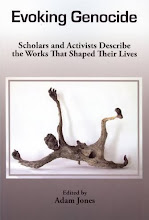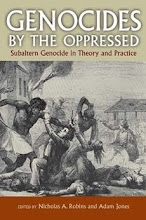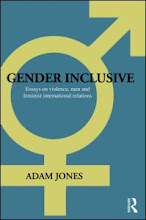Book Review: Armenian Golgotha by Grigoris Balakian
By Tim Gebhart
Blogcritics.org, April 19, 2010
"Given recent history, it would seem the term 'ethnic cleansing' is of late 20th Century origin. Armenian Golgotha, Grigoris Balakian's firsthand account of the Armenian genocide during World War I, disabuses any such notion. Balakian, an Armenian priest, notes several times that the Ottoman Empire embarked on an intentional campaign to 'cleanse' itself of Armenians. Even though this coming weekend marks the 95th anniversary of the beginning of this particular persecution of Armenians, whether to call what happened genocide or something else continues to be debated today. Given that Balakian relates the history from the perspective of someone persecuted by the Turks during that war, his book likely remains controversial today, more than 80 years after the first volume of it was first published. Balakian was one of some 250 Armenian intellectuals and leaders arrested by government order in Constantinople on April 24, 1915, the event commonly viewed as the beginning of the campaign against Armenians in Turkey. Calling what ensued 'cleansing' is perhaps the least blunt description used in his memoir. Perhaps that is because Balakian attributes its use to a police captain who escorted him during part of his trip into exile. According to Balakian, 'the Turks always used this term, especially the government officials, when referring to the massacre of Armenians.' Massacre is a term used far more often as Armenian Golgotha struggles to describe both Balakian's personal experiences and what was happening overall.
He frequently says the Ottoman Empire's actions were a deliberate plan to 'annihilate' or 'to completely exterminate the Armenian race.' First published in 1922, Armenian Golgotha was, sadly, a preview of what the world would become all too familiar with later in the 20th Century, whether the Holocaust in World War II or the 'ethnic cleansing' that occurred in Europe, Asia, and Africa later in the century. Yet Balakian never uses the term genocide. There's good reason -- it was not coined until 1943. Balakian's tale of survival combines both abject misery on the road of exile and an escape and years-long evasion that could form the basis of several adventure stories. But rather than being simply history or memoir, Armenian Golgotha clearly was intended to bear witness to the genocide, its victims, its villains, and its heroes. Thus, Balakian frequently lists or comments on people whose memory he seeks to preserve. That tendency, combined with an at times prolix and effusive style, sets the book off from most modern works of history or memoirs. [...]"
Tuesday, April 20, 2010
Subscribe to:
Post Comments (Atom)















No comments:
Post a Comment
Please be constructive in your comments. - AJ